Two sisters confront their sexual attitudes and experiences while on a family holiday.
REVIEW:
As a horror fanboy whose viewing schedule averages about a movie a day, I frequently get depressed by how little shocks me anymore. After all, I cut my teeth on selections from the “video nasties” list and have seen enough onscreen torture, mutilation, rape, and general awfulness to yawn even when A Serbian Film is mentioned.
Forgive the narcissism; I’m only sharing this information so that you don’t make the same mistake I did by underestimating Fat Girl.
Directed by Catherine Breillat, Fat Girl is the type of slow-burn taboo film I’d show anyone who prefers to eschew gore in favor of intellectually-challenging brutality. And there is a lot of brutality in this 86-minute gem, mostly psychological warfare between teens with varying degrees of naivete about sex and love. Ever had an emotionally crippling break-up, or been used for sex and then discarded? If so, prepare to feel your skin crawl as you watch the process unfold beat by beat.
Anais and Elena Pingot are teenage French girls vacationing with their parents on the beautiful seaside, a romantic setting which inspires the inner-romantic in Elena and the cynic in Anais. Unlike Elena, Anais has no interest in being in love with the first person she loses her virginity to; she says she wants to be “broken in” before meeting a decent man, because all men are pigs and no one should get to brag about being her first. Elena is comparatively more attractive than Anais, who she continually refers to as “lump” and “fat girl,” and Elena’s self-awareness of her own beauty causes her to wager she’ll find true love easily. The girls go to a diner and meet a charming young tourist named Fernando, who Elena is smitten with after an extremely brief conversation.
Although Anais has her own delusions about the relationship between sex and love, she immediately sees through Fernando’s suaveness and warns her sister he’s only trying to sleep with her. Elena dismisses this as jealousy, and after introducing Fernando to her parents as a lover, she sneaks him into the sisters’ bedroom late one night and lets him round the bases like a Red Sox all-star, right up until he sets his sights on home plate.
In a very brief moment of dignity, she tells him if he really loves her he’ll wait until she’s ready. But Fernando’s very cunning—he leverages her morality against her by saying it would be nasty to get him all worked up and then change her mind, and he insists that although he loves her, he’ll have to go find another girl to sleep with if Elena won’t agree to sex. After several similar attacks at Elena’s emotions, he concedes to waiting until she’s ready, but he’s not given up completely: he tells her if she were a “nice girl,” she’d agree to anal sex, which he swears wouldn’t count as losing her virginity.
She expresses complete disinterest in this idea, and is even disgusted by it, but when he tells her she’s breaking his heart, she relents. Her pained whimpers are rather disturbing, and unless you’re ridiculously sick in the head, there’s nothing sexy about this moment. Rather, this is the ongoing “horror” element of Fat Girl: we watch as Elena’s continually used through her and Fernando’s summer fling, right up until he steals a piece of his mother’s jewelry and fakes a marriage proposal in order to sleep with her, but the only one who sees through the charade is ignored by her sister and parents, who only care to comment on her weight and social awkwardness.
As foreseen by Anais, Elena’s heart get shattered when Fernando comes clean (pun fully intended), and their angered mother cancels the remainder of their vacation and drives them home. Although Anais has been Elena’s object of abuse up until this point, she doesn’t gloat, but instead comforts her sister, offering a brief happy moment in this otherwise dreary movie. However, immediately after closure occurs between the siblings, a vagrant at a highway rest stop kills Elena with an axe and then chokes their mother to death while Anais watches, right before raping Anais in the woods and escaping. The police find the gruesome scene the following morning, and although Anais tells them everything that occurred, she insists “It wasn’t rape.”
This ending was bothersome, but looking at it in context with how sex and virginity are portrayed throughout the movie, it makes sense. Unlike her sister, who got humiliated and ultimately killed for putting sex on a pedestal, Anais said from the very beginning of the movie she wanted her first time to be with someone who doesn’t care about her at all. As taboo and awful as Anais’s first time was, she knows for certain where she and the vagrant stand emotionally, and the “punishment” which came with losing her virginity was acceptable in her mind, unlike the cruelty faced by Elena.
I doubt the ending will work for everyone, since on-screen rape is hardly a satisfying conclusion to being put through the cinematic wringer, but if you’ve been patient enough to sit through the other 82 minutes of women suffering at the sexual whims of men, you’ll brave through it.
Elena reminded me of Sansa Stark from early seasons of HBO’s Game of Thrones, easily deceived by a handsome face and notions of storybook romance. I think everyone’s had similar naivete about romance at some point in their life, and we’ve all got a story to tell about being either the manipulator or the manipulated.
Whichever side of emotional tragedy you’ve found yourself on, you’ll undoubtedly find the slimy dialogue rings true throughout the movie, and you’ll cringe while shouting at the screen for Elena to heed warnings from the Fat Girl.
 Horror News | HNN Official Site | Horror Movies,Trailers, Reviews
Horror News | HNN Official Site | Horror Movies,Trailers, Reviews
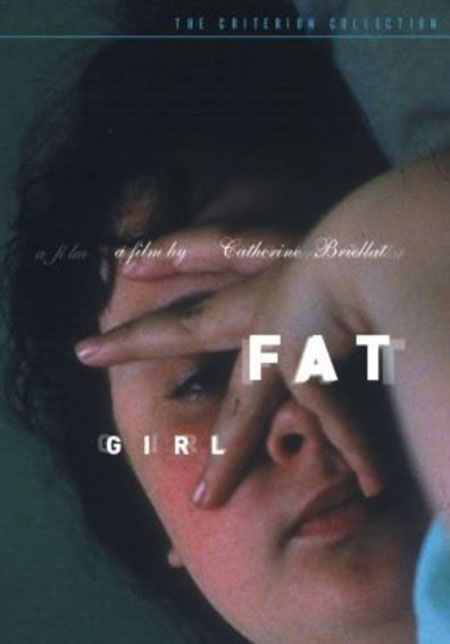
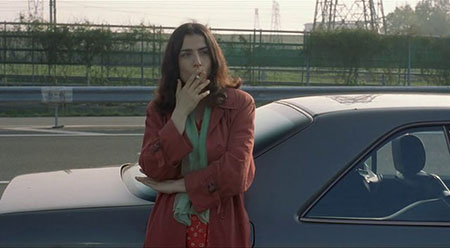
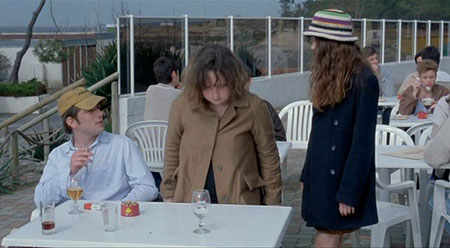
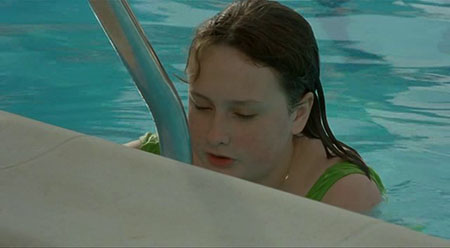
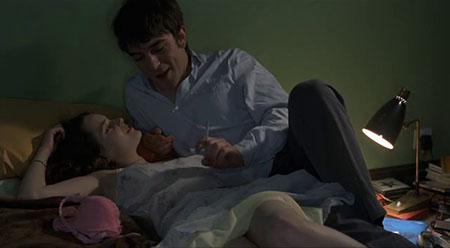
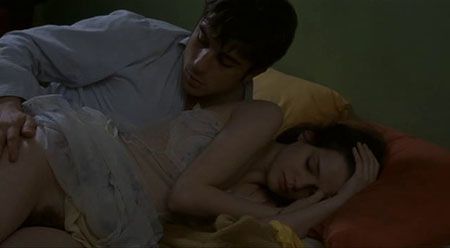
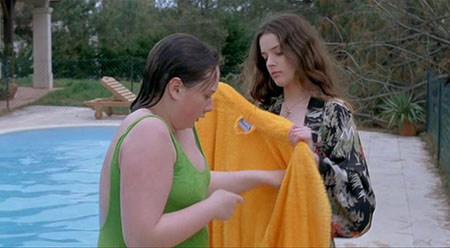

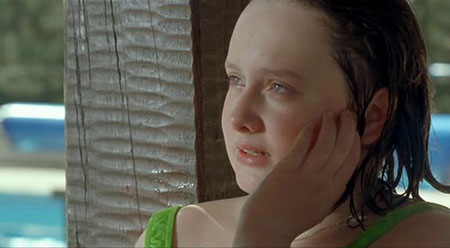
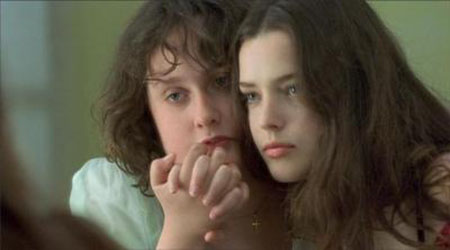
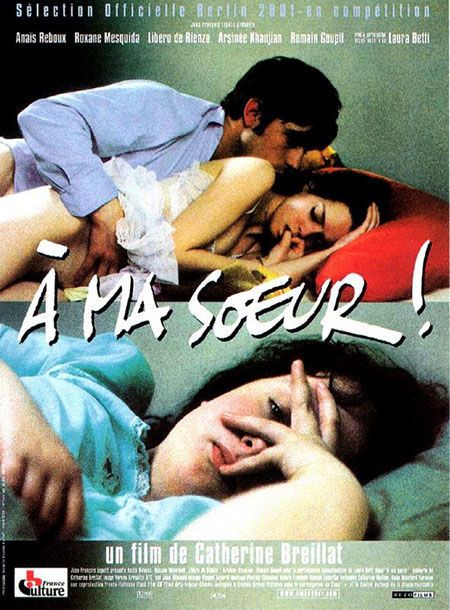




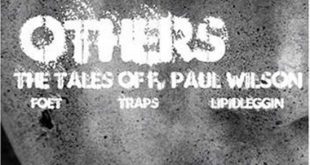

Ooooorrrr… you’ll find Catherine Breillat to be an overplayed pedophile with nothing to offer except her depressingly psychotic whims. I found this movie to be boring from the beginning. It has nothing to say, nothing to offer. Just, as per all her films, “Life sucks then you die… and if you don’t die, it’s because your life hasn’t sucked enough yet so don’t worry, you’ll be raped or beaten up soon… then you can die.”